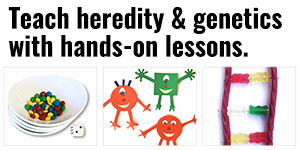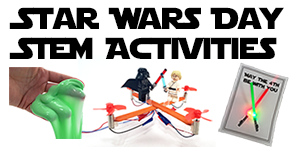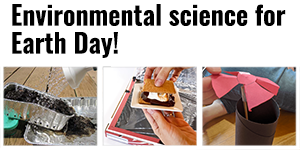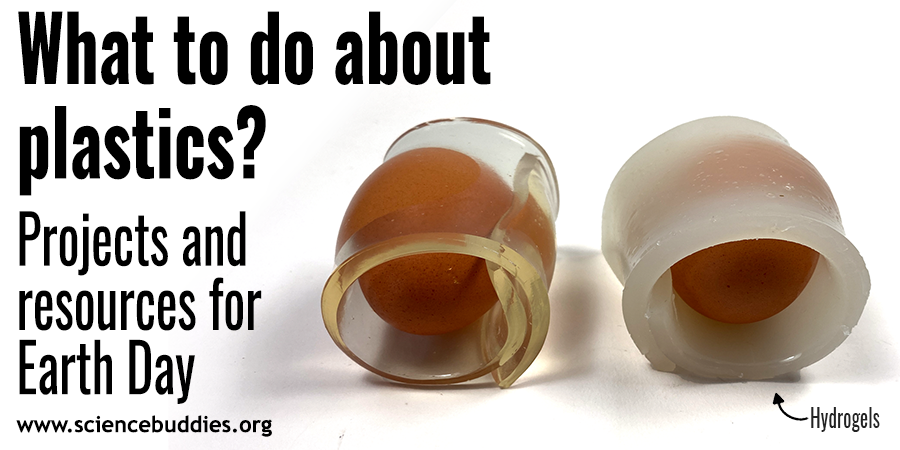Summer Science Reading
Your students need to keep reading—all summer long. Reading helps fight summer brain drain, but if you encourage your students to read books with a science theme, the pages read do double duty. And you? If a popular science title isn't what you would typically grab for a vacation read, it might be time to shake up your summer reading. Science Buddies staff offers suggestions for engaging science-themed reads for tweens and up.
As our elementary school principal wrapped up his "morning circle" announcements a few weeks ago on the last day of school, he closed with: "And students, don't forget to read this summer. Every day." There were a few token groans around the circle, but I couldn't help but smile, happy to have had the critical importance of summer reading highlighted in that way—as a reminder to parents as well as to students. Statistics are clear that reading and math are two areas of learning at the most risk over the summer. I'm sure it's no coincidence that public libraries around the country offer prize-laden summer reading programs as incentive to keep kids reading. I remember a "bookworm" club years and years ago. When it comes to reading, not much has changed. What has changed is the availability of so many other things to do, to schedule, and to flip on, all of which can put time spent with a nose in a book on the back burner, for students and adults alike.
No matter what activities, vacations, camps, or schedules you keep during the swathe of summer days, make sure there is plenty of reading going on. As you help your students choose books and encourage them to read a few more chapters, be on the lookout for great science picks. Mix daily reading with science-themed books, and what do you get? The combination can be a recipe for exciting, immersive, eye-opening, mind-expanding summer reading. We encourage plenty of hands-on science exploration over the summer, both small ones and longer-term ones that bridge the days and develop throughout the break. But reading about science can also broaden a student's frame of reference and open up new paths of potential interest—for everyone in the family! Set a great example, and stock your own to-read shelf with some of today's most exciting popular science titles.
"Checking Out" Science
After reading Science Fair Season: Twelve Kids, a Robot Named Scorch... and What It Takes to Win
last month and finding myself really caught up in the stories of the students profiled, I started pulling a wide range of science-themed books from the library shelves. In recent weeks, I have been surrounded by piles of science and math titles, stacks of books brimming with information on nests, spirals, chemistry, physics, poisons, biology, and more. With each one I picked up, I found myself hooked in different ways.
Nests: Fifty Nests and the Birds that Built Them has been open next to me for a number of days.
The book is a beautiful collection of photos of birds nests—and their eggs. If you think all nests are woven baskets of twigs, you will find Nests an eye-opening and wonderful exploration of the amazing diversity, artistry, innovation, resourcefulness, adaptation, and sheer functionality encapsulated in the nests made by different kinds of birds. Twigs, man-made debris, saliva and spider webs only tap the surface of the range of materials used in nest construction, and each species builds nests that tell a story, in part, of the local habitat. Accompanying Beals' photos are short but thorough profiles of each species covering nest-building, mating, parenting, migration, and other distinguishing characteristics. This is a book birders of all ages, life-list or not, can savor.
Intrigued by the bevvy of kitchen chemistry titles on the market, I cracked open the pages of What Einstein Told His Cook 2
, one of a series
of books from Robert Wolke. In this volume, Wolke tackles a broad spectrum of questions from readers of his Washington Post column in categories like beverages, dairy and eggs, vegetables, seafood, and grains and carbohydrates. In response to seemingly simple but earnest questions, some of which bring up family kitchen lore handed down through the ages, Wolke explains the science that underlies everyday observations you can make in the kitchen. Wolke's approach targets the casual science reader and kitchen enthusiast. You might find an answer to a question you've wondered about, or an answer to something you've noticed but never thought to question. Ever asked why tea stored in the refrigerator turns cloudy?
What to Read
After scanning titles, reviews, and book blurbs on some favorite science-related and bookseller sites, I had scores of amazing-sounding titles I wanted to look up, check out, thumb through, curl up with, or share with my own students. The Immortal Life of Henrietta Lacks
or Radioactive: Marie & Pierre Curie: A Tale of Love and Fallout,
with its glow-in-the-dark cover, might be next on my to-read list, but I've also been wanting to read something by Jane Goodall,
and my own interests leave me curious to see Field Notes on Science & Nature.
Some titles are just tantalizing and intriguing, like Napoleon's Buttons: How 17 Molecules Changed History
and The Disappearing Spoon: And Other True Tales of Madness, Love, and the History of the World from the Periodic Table of the Elements.
But then there are titles exposing the dark side of plants,
the underbelly of poison,
and a beekeeper's efforts
to save the bees. With so many popular science titles vying for attention, I asked the Science Buddies staff to share favorite titles they recommend for both high-school readers and adults. Their suggestions, shown below, contain both new and classic titles from popular science, and even a perennial science fiction favorite, that you and your older students may enjoy. We would love to hear your favorite science titles as well!
While you shouldn't always judge a book by its cover, here's our list of suggestions for summer science reading:
We will be posting other lists of some of our favorite middle and K-5 titles, including some graphic novels and manga, and some suggested math titles, so stay tuned!
Categories:
You Might Also Enjoy These Related Posts:
- Book list for science-filled summer reading!
- New Series of Science Buddies Books
- Look Up: Bird and Astronomy Summer Reading
- Blending Science and Art with Paper Inventions
- Special Effects Fun with Nick and Tesla
- Nick and Tesla Build a Gadget Glove: Science Reading
- The Most Magnificent Thing: Science Reading
- Do Even More with Your Raspberry Pi Projects Kit













































